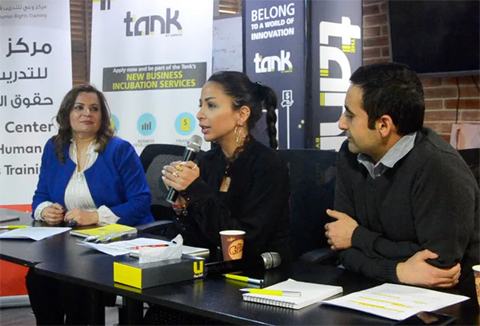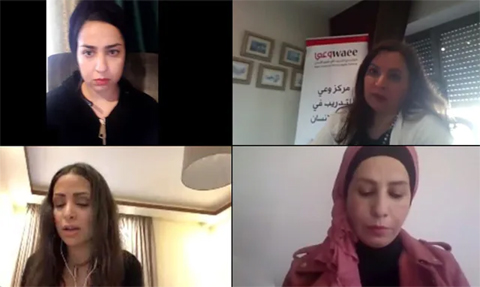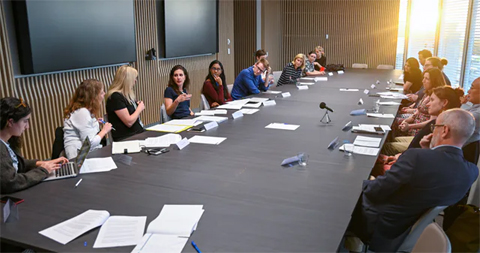 |
 |
|
Published by Bahá'í World News Service October 2,2020 October 14, 2020 PANDEMIC SPARKS CRITICAL REFLECTION ON JOURNALISM  AMMAN, Jordan, 2 October 2020, (BWNS) — Earlier this year, as the pandemic was sweeping across the globe, something unusual happened in news reporting—profound ideas about social transformation and acts of solidarity were making headlines worldwide. Although less pronounced now, news outlets continue to feature such stories, many of which would have been considered irrelevant or insignificant before the crisis. Responding to increased interest among media professionals about new approaches to the field, Bahá’í communities in several countries have been exploring with journalists and others how the media can contribute to societal harmony and stimulate thoughtful conversations on issues facing humanity.  The Bahá’ís of Jordan have been hosting roundtable discussions with journalists on how the media can be a source of hope for society. “The Bahá’í teachings envision the media as a vital element of society with the potential to be a mirror for the world, reflecting the range of experience of diverse people,” says Tahani Ruhi, of the country’s Bahá’í community’s Office of External Affairs. “At certain points in the past few months, a fuller picture of the world has been reflected in news reporting: not just of sensational narratives, but also of the constructive processes that exist in every community. The media’s power to inspire hope has become especially visible during this time. Due attention has been given to positive developments—big and small—that show the nobility of people and their capacity to put the needs of their fellow citizens ahead of their own.” Ghada al-Sheikh of the Al-Ghad newspaper, a participant of the roundtable meetings, says: “These discussion spaces are allowing us to better understand important concepts related to progress and to think deeply about their implications for our work. Our consciousness of our mission as journalists is being strengthened as we consult together on issues of social and economic solidarity and how the media can contribute to people’s sense of priorities.”  The roundtable participants in Jordan have also been looking at the impact of structural factors in a media industry shaped by commercial interests. “Media practitioners should not view themselves as competitors, but as collaborators. We are seeking truth, whatever form of media we produce,” said Mahmoud Hishmeh, director of the East and West Center for Dialogue and Sustainable Development, during one of the discussions. On the other side of the
world, the Australian Bahá’í community has
also been bringing journalists and others in media together to examine
how to be conducive to social cohesion, an issue of great significance
in the country. One such effort includes a series of structured
discussions, in collaboration with First Draft and the Centre for Media
Transition, bringing together media practitioners to reimagine the
Australian media landscape. |
|
|